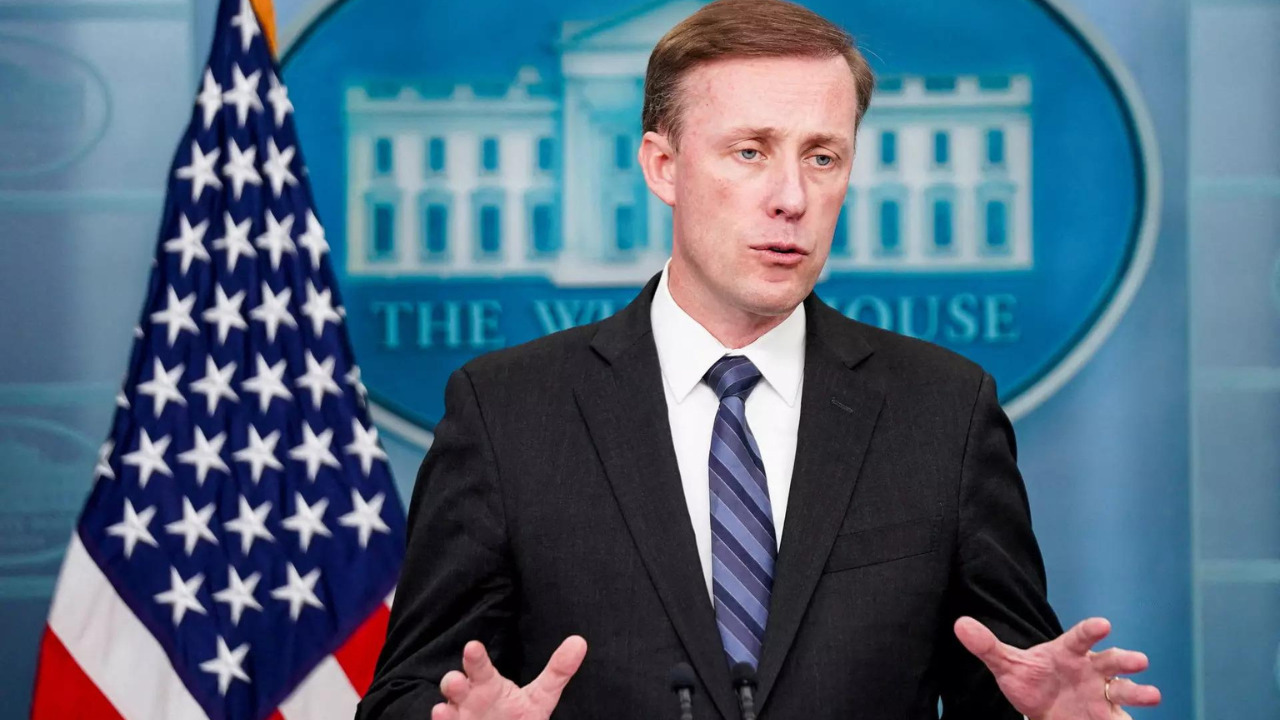TBILISI: The United States said on Saturday it was deeply alarmed by democratic backsliding in Georgia which Washington said had a choice to support either a “Kremlin-style” foreign agent bill or the people’s Euro-Atlantic aspirations.
“We are deeply alarmed about democratic backsliding in Georgia,” US National Security Advisor Jake Sullivan wrote on X.
“Georgian Parliamentarians face a critical choice – whether to support the Georgian people’s EuroAtlantic aspirations or pass a Kremlin-style foreign agents’ law that runs counter to democratic values,” he said. “We stand with the Georgian people.”
The bill, which would require organisations receiving more than 20% of their funding from abroad to register as “agents of foreign influence”, has touched off a rolling political crisis in Georgia, where thousands have taken to the streets to demand the bill be withdrawn.
Parliament, which is controlled by the ruling Georgian Dream party and its allies, will begin committee hearings on the bill’s third and final reading on Monday. Opposition groups have called for a fresh wave of protests from Saturday.
The crisis has pitted the Georgian Dream ruling party against a coalition of opposition parties, civil society, celebrities and the country’s figurehead president, with mass demonstrations shutting down much of central Tbilisi almost nightly for more than a month.
Georgian opponents of the bill have dubbed it “the Russian law”, comparing it to legislation used to target critics of Vladimir Putin’s Kremlin.
The European Union, which granted Georgia candidate status in December, has said that the bill will pose a serious obstacle to further integration if passed.
Georgian Dream says the bill will promote transparency and Georgian national sovereignty.
Bidzina Ivanishvili, the founder of Georgian Dream, has said the law is necessary to stop the West trying to use Georgians as “cannon fodder” in a confrontation with Russia.
Jake Sullivan said that Georgian Dream appeared to be deliberately trying to break with the West, even as both the ruling party and Georgian public opinion has traditionally been in favour of the country’s joining the EU and the US-led NATO military alliance.
Sullivan wrote: “Georgian Dream’s recent rhetoric, proposed legislative changes, and actions go against the aspirations of the Georgian people and are designed to isolate Georgians from the United States and Europe.”
“We are deeply alarmed about democratic backsliding in Georgia,” US National Security Advisor Jake Sullivan wrote on X.
“Georgian Parliamentarians face a critical choice – whether to support the Georgian people’s EuroAtlantic aspirations or pass a Kremlin-style foreign agents’ law that runs counter to democratic values,” he said. “We stand with the Georgian people.”
The bill, which would require organisations receiving more than 20% of their funding from abroad to register as “agents of foreign influence”, has touched off a rolling political crisis in Georgia, where thousands have taken to the streets to demand the bill be withdrawn.
Parliament, which is controlled by the ruling Georgian Dream party and its allies, will begin committee hearings on the bill’s third and final reading on Monday. Opposition groups have called for a fresh wave of protests from Saturday.
The crisis has pitted the Georgian Dream ruling party against a coalition of opposition parties, civil society, celebrities and the country’s figurehead president, with mass demonstrations shutting down much of central Tbilisi almost nightly for more than a month.
Georgian opponents of the bill have dubbed it “the Russian law”, comparing it to legislation used to target critics of Vladimir Putin’s Kremlin.
The European Union, which granted Georgia candidate status in December, has said that the bill will pose a serious obstacle to further integration if passed.
Georgian Dream says the bill will promote transparency and Georgian national sovereignty.
Bidzina Ivanishvili, the founder of Georgian Dream, has said the law is necessary to stop the West trying to use Georgians as “cannon fodder” in a confrontation with Russia.
Jake Sullivan said that Georgian Dream appeared to be deliberately trying to break with the West, even as both the ruling party and Georgian public opinion has traditionally been in favour of the country’s joining the EU and the US-led NATO military alliance.
Sullivan wrote: “Georgian Dream’s recent rhetoric, proposed legislative changes, and actions go against the aspirations of the Georgian people and are designed to isolate Georgians from the United States and Europe.”

